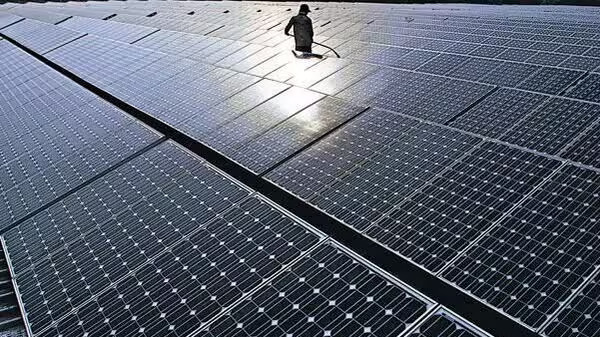The Union ministry of new and renewable energy may soon mandate battery storage capacity for upcoming solar and wind power plants, said Prashant Kumar Singh, secretary, Union ministry of new and renewable energy on Monday.
Addressing the 21st edition of the Global MSME Business Summit organized by the Confederation of Indian Industry (CII), the official said that an initial mandate of 10% of the plant’s total renewable energy capacity may be introduced for storage, and that this can then be gradually enhanced.
Speaking to reporters on the sidelines of the event, Singh said: “Today we are dealing with this issue of intermittency, the adaptation of RE (renewable energy) is not there to that extent because people say solar is there for 7-8 hours and wind is seasonal. Now it has been experimented and (proven) that if you use some battery storage, it becomes a continuous and complete round-the-clock power supply.”
“The tenders that have happened recently where (for) solar plus wind plus battery, the rates that we have been getting are better than that for a coal non-pithead plant. It’s come down to that level. Now, with falling battery prices, it makes a lot of sense to go ahead and henceforth not have any (plain) vanilla solar or (plain) vanilla wind project.”
The intermittent nature of renewable energy requires battery energy storage systems or pump storage projects (PSP) for storing and regular release of power, which would keep the grid stable and ensure round-the-clock power supply.
“Looking at declining battery prices we may start with a small quantum of compulsory battery storage in the solar plant or wind plant and gradually scale it up. I would say 10% would be a good start. Then we shall also give you a trajectory… depending on price as the price keeps coming down. As it comes down further, it can be 30-40% also. The point here is there is immediately a requirement to set up extra capacity with battery storage where transmission line is there but used only for 7-8 hours,” Singh said, adding that the norm would come in “very soon.”


